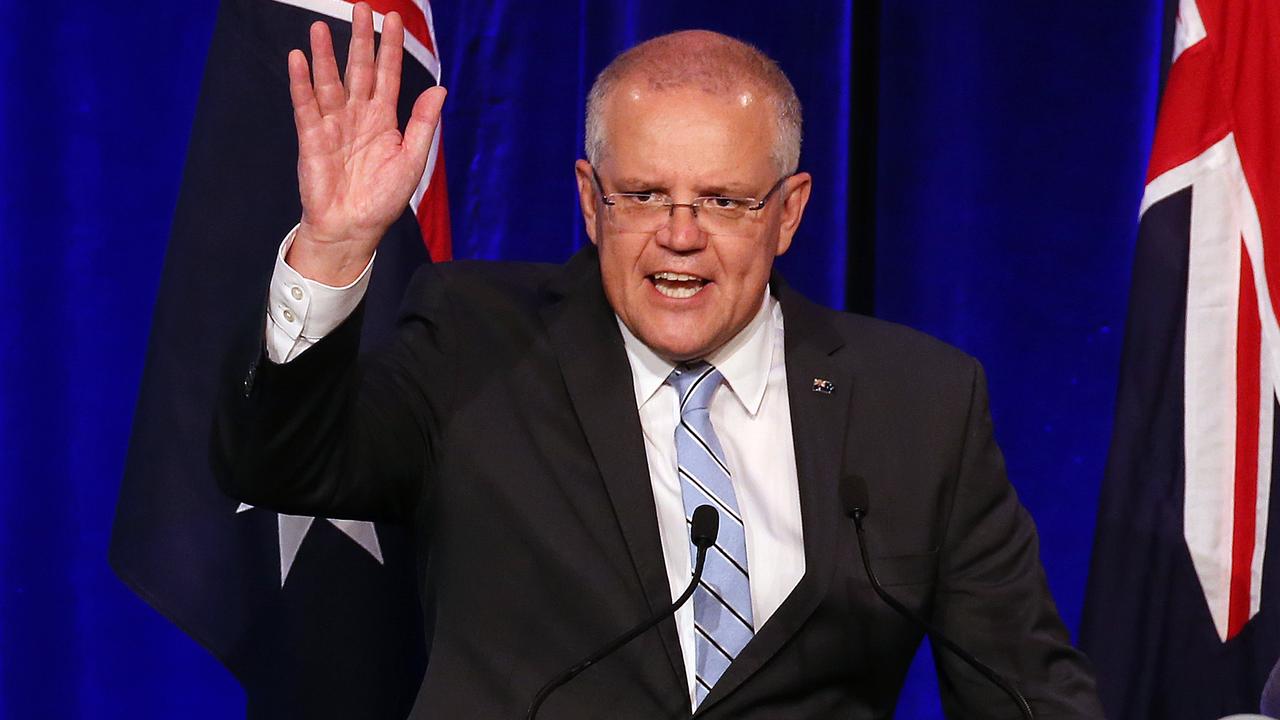Masterclass in politicised money management
WAYNE Swan started his budget speech last night by noting "the four years of surpluses I announce tonight are a powerful endorsement of the strength of our economy".
He was talking about the forecasts for the 2012-13 financial year and beyond.
Sounds impressive. Until you get to his announcement of the actual deficit for the current financial year.
It has blown out to $44 billion. Swan used up more than 800 words in his budget speech before getting to that bad news.
I thought I'd get it on the record in my first 100.
Because economic forecasting is inherently unreliable and inaccurate, the only numbers that matter with respect to surpluses and deficits are those for the current financial year.
The slightest shift in economic growth, the value of the dollar or movement in a range of other indicators can add or subtract billions of dollars from the final outcome. And this government (unlike Peter Costello's forecasting) has always been on the wrong side of the shift.
Don't take my word for it, believe the Treasurer.
Under questioning in his budget lock-up press conference Swan used the law of unexpected events to justify the blowout in this financial year's budget.
How could he be expected to predict natural disasters for example? The answer is: he can't, which is why placing so much political stock in a return to a wafer-thin surplus is a dangerous business.
What's more important than the forecasting Swan laid out for the 2012-13 financial year, however, is the policy mix being embarked on.
Labor is attempting to provide handouts to its base and beyond, wedge Tony Abbott into threatening to take them away, and in the process force voters to sit up and take notice of the variables between the government and the alternative government.
Stop kicking the government and start comparing it with the opposition is the catchcry.
The surplus target is the red herring, wealth redistribution is the real story. Which makes it a more politically oriented budget than most. Forget all the talk about the focus being on economic settings to help put downward pressure on interest rates. If that happens it will be a bonus for Labor. The main purpose behind this budget is to re-engage with mainstream voters. Targeted cash injections is the method.
Labor hopes voters get the cash and start to think about what losing it may mean for them. The logic extends to a belief that, just maybe, they will become attached to the money being put in their pockets at the same time as they detach from Abbott's scare campaign over the carbon tax.
The question is whether the government (Gillard in particular) is too far gone to catch the attention of the public.
As impressed as Swan and his inner circle may be with his multiple surplus forecast for the years ahead, it's reasonable for the rest of us to judge him (at least in part) on his record.
The $44bn deficit for this financial year was forecast to be $12bn when Swan first tried to predict it. Then it was raised to $22bn, then $37bn, now it has blown out to $44bn.
Hands up anyone who thinks the $1.5bn surplus now being forecast for the next financial year will be realised, or the $2bn for the year after that. The betting markets certainly don't. Before this financial year Swan handed down deficits of $47bn, $54bn and $27bn, going back to 2008-09.
That said, I am sure the Prime Minister has "full confidence" in the Treasurer's ability to come good on his budget promises.
This budget is also tricky in parts. Money is being moved around (on paper) to achieve the surplus forecast. For example, by pre-paying the Clean Energy Advance to households as part of the assistance package this month and next instead of after July (once the carbon tax begins) the 2012-13 forecast is spared $1.5bn in spending. It is simply shifted into that $44bn figure delivered for 2011-12.
Given that the surplus for next year is predicted to be $1.5bn, clever accounting in this example alone represents the difference between a deficit and a surplus for 2012-13.
The difference between political poison and the hope of political redemption perhaps?
Not if you believe the surplus is the red herring that I do.
The main story out of this budget is the manner in which Swan has gone about addressing the "patchwork economy", as he again referred to it last night.
He has junked a major part of his nuanced approach to managing the two-speed economy (company tax cuts) and replaced it with direct handouts to unhappy voters: education handouts, carbon tax compo and increases to Family Tax Benefit A.
Swan initially argued in favour of the mining tax as a way to tax the booming end of the economy to pay for company tax cuts to help those sectors struggling, such as retail and manufacturing industries.
In this budget he has scrapped the company tax cut altogether, saving the budget bottom line nearly $5bn over the forward estimates.
In his 2010 budget speech Swan hailed company tax cuts as vital because they "will boost our competitiveness, expand investment and job opportunities".
A handout replaces the hope of giving people a hand up courtesy of a more competitive business environment. It's a necessary political move because the government's standing in the polls suggests the carbon compensation package alone won't offset voter anger. This is another politically inspired budget.


